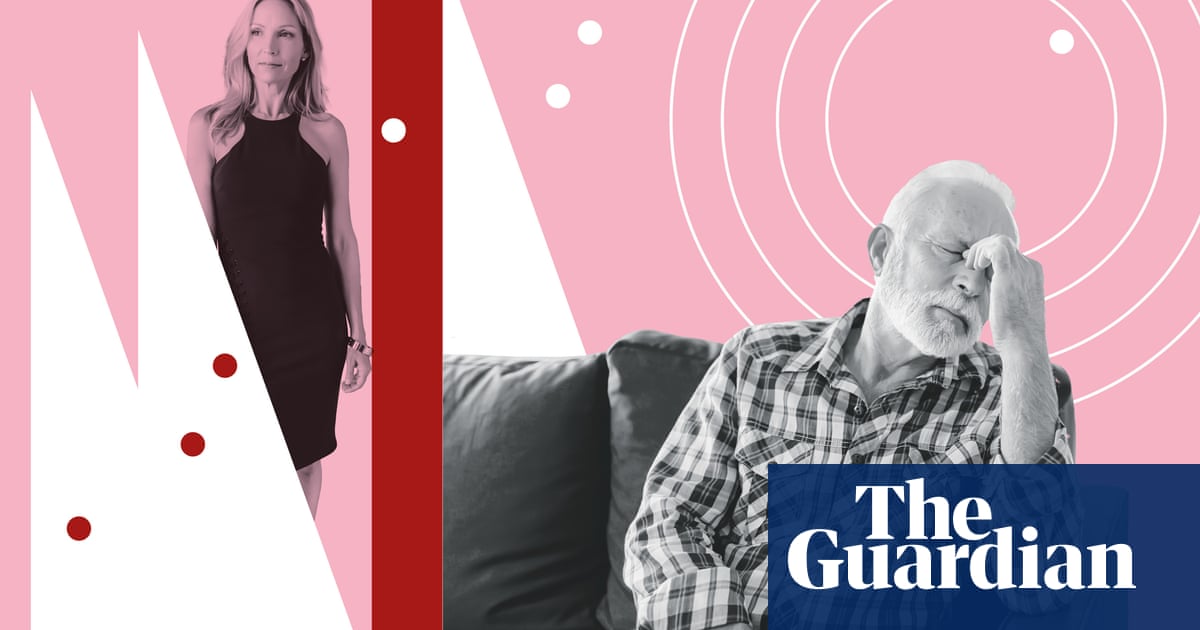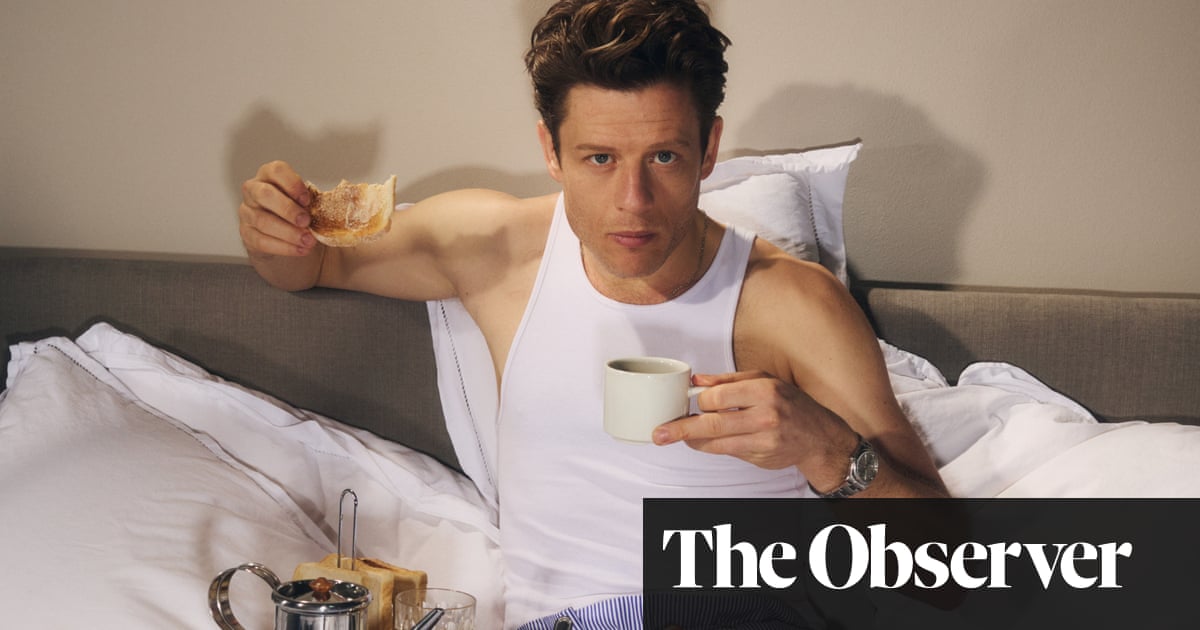
roadcaster and author Graham Norton, 58, grew up in County Cork. He moved to London to go to drama school, before becoming a standup comedian. His TV breakthrough was in the sitcom Father Ted. His BBC chatshow began in 2007 and has won five Baftas, while his Virgin Radio show is broadcast on weekend mornings. Norton has commentated on the Eurovision song contest since 2009 and is a judge on RuPaul’s Drag Race UK. His third novel, Home Stretch, is out in paperback this week.
Home Stretch traces the fallout from a car crash. Was it based on a real-life incident?
It’s based on a whole phenomenon. Every summer in Ireland, there are these crashes of cars with too many young people in them. Sometimes, there might be drink involved, but often it’s just reckless driving and the confidence of youth. Because it’s a much smaller country, these stories make the national news and what I noticed was that often the driver survived. That was my starting point – I thought, what happens to that life? It’s hardly begun but it’s blighted by this awful tragedy.
The central character, Connor, has to leave Ireland to find happiness. Did you?
I think so. Not everyone did, though. That’s why I dedicate the book to all those who stayed and made Ireland the extraordinary modern republic that it is today. I certainly saw my life happening somewhere else. That wasn’t just about sexuality but also wanting to be an actor. I didn’t know how to do that in Ireland. Back then, Fiona Shaw was the only person I knew of who’d ever done it. That was the only roadmap I had, so like her, I went to UCC [University College Cork], then drama school in London.
Would you still want to leave Ireland if you were growing up now?
I think I’d still want to get off that small island for a bit. But maybe I’d go back sooner. I didn’t start returning until my late 30s, so missed a whole chunk of Irish history. My experience of going home is great. The place looks and sounds the same but now it has this openness. Ireland’s in a sweet spot right now. You sense young people’s pride in this country that they lobbied for, carried placards for and created.
What’s the difference between writing gay and straight sex scenes?
There isn’t one really. It’s a balancing act. You don’t want to be too graphic – I’m always aware that my mother is going to read them – but not too coy either. I often reread those scenes, go “Eugh!” and delete a few adjectives. Nobody wants to be nominated for a Bad sex award. Although it’s telling that sex is so difficult to write about, they invented an award for it. There isn’t a bad grief award or a bad love award.
It’s a cliche that the Irish have storytelling in their blood, but do you think it’s true?
There’s something in it. What I’ve noticed is that in Britain, people like to know someone in a story – so it’s either celebrity gossip, a neighbour or someone at work. They like to be somehow invested in an anecdote. In Ireland, we do not require that. We don’t care if it’s about your brother-in-law’s school friend’s old boss. As long as it’s a story, we’re there for it. Irish people talk in a different, more random way. It’s like birdsong. Often, it doesn’t have much meaning – we just enjoy making the sounds.
Was there a particular book that inspired you to write fiction?
I first wanted to write novels in my late teens – I loved Lorrie Moore, Paul Auster, a lot of Americans – but back then, you’re busy. You’re either out, studying or working long hours as a waiter. I look at young writers such as Sally Rooney and think: “Where do you get the discipline to sit still for that long, at that age, crafting these brilliant novels?” It’s only in my 50s that I’ve got time to sit down and tip-tap away. When I was young, I was far too gallivanty. Is that a word? It is now.
Did you read much in lockdown?
Like lots of people, I couldn’t concentrate at first. Just when I finally had the time, reading seemed beyond me. But then something clicked in my brain and I ended up reading loads. Apeirogon by Colum McCann was terrific. A Town Called Solace by Mary Lawson was a beautiful thing. I also loved Exciting Times by Naoise Dolan.
Did you take up any new hobbies?
The opposite, if anything. I previously enjoyed cooking but got really bored by my own food. It became like: “Jesus, when I can stop? Meh, I’ve made this before.” I couldn’t wait for restaurants to reopen.
Were you happy with your Covid-safe chatshow during lockdown?
Initially, we did a terrible back-bedroom series that nobody liked, but it was a way of keeping people employed. Since autumn, we’ve been back in the studio in various socially distanced ways. It’s funny the glimpses that guests give us of their house over Zoom. Some celebrities looked like they were being held hostage in a bunker. Others were happy for us to see their grand pianos and rolling lawns.
Which guests are still on your wishlist?
Julia Roberts has never been on. Neither has Brad Pitt. The young royals would be interesting.
You recently had a voice role in Pixar film Soul. How did that come about?
I got a call out of the blue, went to New York for a recording session and it was genuinely one of the most fun things I’ve ever done. Sweetly, they treated me like a proper actor, not some hopeless amateur. When they didn’t re-voice me or cut me out, I was thrilled.
Perhaps they heard you were the new Fiona Shaw.
That’s me. Fiona Shaw wasn’t in Soul, was she? No.
Eurovision is next month. Looking forward to it?
I’m both excited and nervous. I’ve heard it’s being staged as a test event. Being in a Rotterdam arena with 4,000 people before I’ve had my second jab will be quite something, but bring it on.
RuPaul’s Drag Race UK was a lockdown hit. Are you proud to be part of it?
Pathetically proud. I’d been a fan for years and it’s the only job I ever went a-looking for. When I heard the show was coming over here, I must’ve been a bit drunk because I emailed the producers. They claim I was on their list anyway. What the queens do is awe-inspiring. As a judge, you only ever see them on the runway, so it’s not until the series airs that I see them as boys. It’s such a shock: “Wait, that’s Bimini?”
And it’s a chance to wear your more flamboyant suits.
Oh Jesus, it gets worse. In lockdown, I wasn’t able to go out and buy anything, so I was really scrabbling around the bottom of the dressing-up box. You’ll see some really rank suits in the next series.
What’s in the pipeline for you?
I’m supposed to have embarked upon novel four a month ago. I haven’t started typing yet, but it’s bubbling away. The TV show comes back in September, hopefully with a live audience. It’s been kind of fun without them – you feel giddy, like your parents are away – but you miss that energy and instant response.
Do you worry for the comedy scene’s recovery after the past year?
It’s been so hard for all the performing arts. Comedy’s lucky because you can get it back on its feet relatively easily. All you need is a mic and some chairs, so hopefully that will bounce back fast. It’s theatre I really worry for.
Does criticism of the BBC annoy you?
It’s the public broadcaster, so it’s always going to be under scrutiny. I just wish it would defend itself more robustly. Our commercial stations are only as good as they are because they’ve got to match the BBC’s standards. When you go abroad and watch terrestrial TV, it’s shockingly bad. By getting rid of the BBC, you’re essentially signing up for jaundiced news and terrible programming. That’s sad. One day, we’ll look back at the BBC and wonder how we were manipulated by vested interests into losing this great thing.












